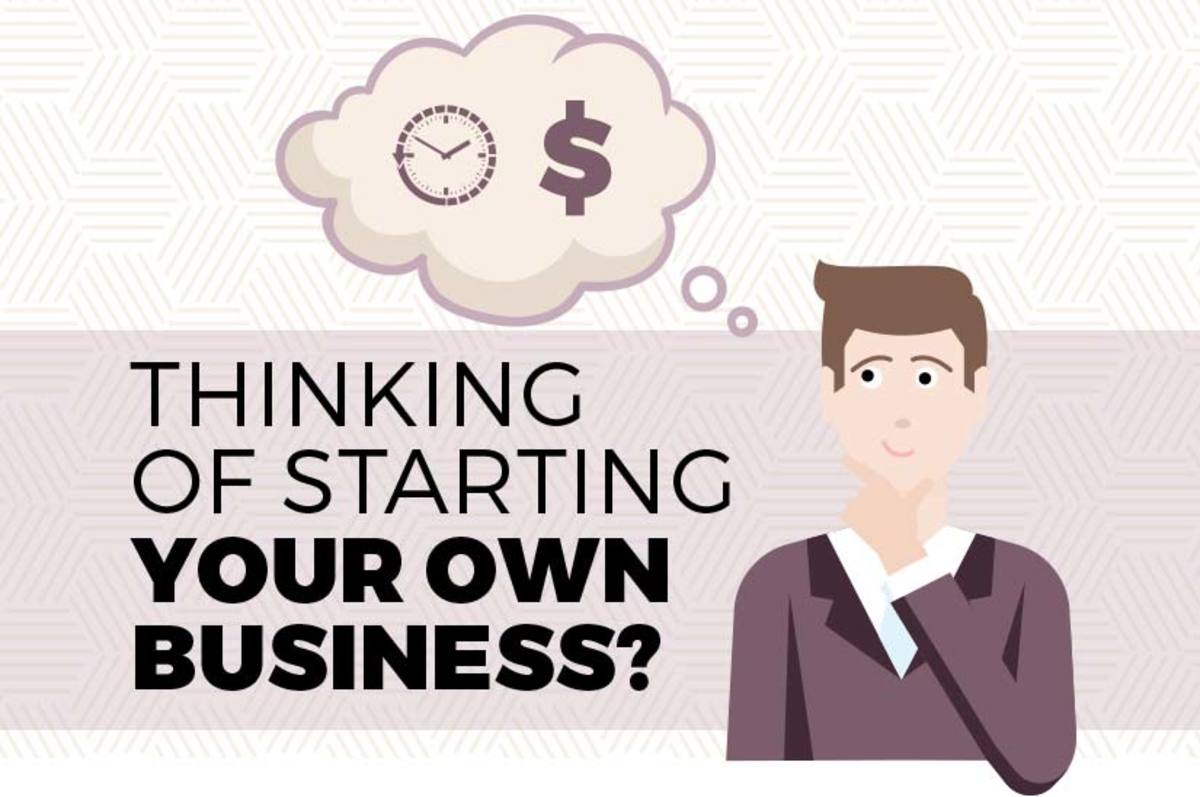- HubPages»
- Business and Employment»
- Small Businesses & Entrepreneurs»
- Entrepreneurship
Successful Entrepreneurs - Born, Bred, or Both?
by Kathy Batesel

Entrepreneur and Manager Traits - Big Difference
Are entrepreneurs genetically predisposed to run businesses, or are they the result of their upbringing? Numerous studies have identified entrepreneurial traits, but relatively little has addressed this fundamental question.
A 2006 study published in the Journal of Applied Psychology evaluated whether managers and entrepreneurs differed in certain characteristics. The authors’ meta-analysis examined 23 existing studies to investigate five character traits in both managers and entrepreneurs:
- Open to new experiences
- Conscientiousness
- Agreeableness
- Neuroticism
- Extraversion
Researchers discovered notable results. Entrepreneurs scored higher on openness to new experiences and conscientiousness than managers did, and lower on agreeableness and neuroticism scales. (The fifth trait, extraversion, revealed no significant difference.)
This appears to make sense. Those who remain in management positions rather than striking out on their own are likelier to fear failure and be cooperative within their companies. Those who establish their own businesses must have confidence and endure challenging trials.
But are these traits the result of innate nature, or are they learned?
What do you think?
Are entrepreneurs born or made?
Was Oprah Born with Entrepreneurial Instincts?
Oprah Winfrey may be the quintessential entrepreneur. As a child, she demonstrated remarkable aptitude, moving ahead two grade levels. Despite impoverished and occasionally abusive environments, by her teen years she’d become familiar with speaking to crowds. Her meteoric rise to fame has been attributed to what many have called her “natural” style. She turned down two job opportunities from the CBS network, until a mentor reminded her that such offers were the very reason people attended college. She formed her own production company when she was 32 and is now one of the wealthiest women in America.
Her confidence, willingness to take on new experiences, and raise controversial topics are clearly evident in her history. Her success speaks to her conscientiousness at managing the tasks required of her career.
Was she born with these traits? She has three siblings. Two of them died at young ages; one from AIDS and one from drug addiction. (The third sibling, her recently discovered half-sister, was raised in foster homes and by adoptive parents. Very little information has been made public about Patricia, whose last name hasn’t been released.)
Her mentor’s sage advice to stop turning down promising positions proved worthy. Oprah herself attributes her grandmother’s influence (teaching Oprah to read at age three) and her father’s stern emphasis on education as important factors in her success. Since many highly educated people never reach billionaire status, it’s logical to assume that her personality, not her education, separate her from the pack.
In your opinion...
Will children be more successful if they are required to stay in their extracurricular activities, like band or sports?
Outliers and Concerted Cultivation
Malcom Gladwell, author of Outliers: The Story of Success, might disagree. He describes social conditions and parents who emphasize “concerted cultivation” as critical factors. Using Bill Gates as an example, Gladwell promotes the idea that 10,000 hours of participation in an endeavor is required to be exceptional, and so are a receptive social climate and assistance from others.
Gates, he says, was introduced to computers at an early age. His parents provided the means for him to obtain nearly unlimited access to computers before universities has access to them. When American businesses and individuals recognized that binary technologies could open vast opportunities, Gates had already spent well over 10,000 hours learning and developing computer applications in a field primed for growth.
Parents who force their children to stick with activities even when the child is tempted to quit believe they are teaching their kids self-discipline, determination, and helping their children learn to succeed against obstacles. If Gladwell's theory is correct, these parents may be fostering an entrepreneurial spirit in their offspring and helping them to become experts at what they do.
Compare Other Successful Entrepreneurs
Walt Disney’s started drawing at age seven. His neighbor paid young Walt to draw pictures. While living in Kansas City at ages 10-16, he was extensively exposed to vaudeville, art classes, and amusement parks. He attended the Chicago Art Institute and drew cartoons for its newspaper. He continued to illustrate while volunteering for the Red Cross and in later employment before he and his brother co-founded a cartoon studio in California just as the motion picture industry experienced explosive growth.
Estée Lauder learned sales in her family’s hardware store as a child. At sixteen, she sold her uncle’s beauty creams. Her husband co-founded the company that bears her name in 1947. Cosmetics, used since ancient times, first became fashionable in America during the 1920s. The industry grew massively when Hollywood starlets catapulted the allure of beauty following World War II’s deprivations.
Donald Trump’s father was a real estate developer who turned the family business over to his son, who capitalized on New York City’s generous abatements to promote re-development of challenged areas.
Conclusion about Entrepreneurial Traits
These world-famous entrepreneurs had siblings whose fates never reached such lofty pinnacles. Oprah Winfrey’s grandmother and father fostered opportunities for her to speak publicly, and the pending civil rights movement opened doors that would have remained close just a few years earlier.
Are entrepreneurs born, or are they bred for success? The answer is clear: Entrepreneurs are born. Then they’re shaped. Finally, they succeed.









